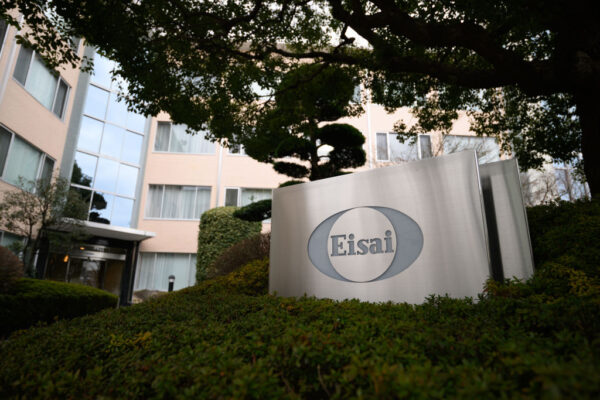
Eisai has won full FDA approval for its Alzheimer’s disease drug, a regulatory decision that sets precedent for the review and potential approval of other therapies for the neurodegenerative disorder. However, while conversion of Leqembi’s accelerated approval to traditional approval was widely expected, it also comes with warnings about severe complications, including ones that were tied to deaths reported after the confirmatory clinical trial for the drug.
Leqembi is an antibody that works by breaking up plaques of amyloid beta, a protein that builds up in the brains of Alzheimer’s patients. The FDA decision announced Thursday covers Alzheimer’s patients who have mild cognitive impairment or mild dementia, the same population evaluated in clinical testing of the drug.
In January, the FDA granted Leqembi accelerated approval based on a placebo-controlled Phase 2 study that enrolled 825 patients. Results showed reduction in amyloid plaque in the brain after 12 months of treatment with the drug, an intravenous infusion given every two weeks. This surrogate endpoint was the same basis for the 2021 accelerated approval of Biogen Alzheimer’s drug, Aduhelm. Surrogate endpoints are indicators that a drug might be working. Patient benefit must be demonstrated in a confirmatory study.
The Phase 3 study that also served as Leqembi’s confirmatory study evaluated the drug in a larger group—1,795 patients—who were treated for 18 months. Results showed that compared to placebo, those treated with Leqembi had a statistically significant 27% reduction in clinical decline measured according to a scale used to evaluate dementia symptoms.
“Today’s action is the first verification that a drug targeting the underlying disease process of Alzheimer’s disease has shown clinical benefit in this devastating disease,” Teresa Buracchio, acting director of the Office of Neuroscience in the FDA’s Center for Drug Evaluation and Research, said in a prepared statement. “This confirmatory study verified that it is a safe and effective treatment for patients with Alzheimer’s disease.”
Side effects reported in the trial included amyloid-related imaging abnormalities (ARIA), a potentially fatal swelling and bleeding complication that is a known side effect of amyloid-targeting antibody drugs. Leqembi’s initial drug label included a warning about ARIA. But the label for the drug’s full approval highlights this risk in a black box warning—the sternest alert that the FDA can issue. The boxed warning also flags a higher risk of ARIA in patients who are carriers of APOE4, a gene that increases the risk of Alzheimer’s.
During the open-label extension study that followed Leqembi’s Phase 3 study, three deaths attributed to brain bleeding complications were reported. In two of them, patients were using blood thinners while receiving Leqembi treatment. The drug’s label urges caution for patients who are taking anticoagulants. These risk factors were discussed during an FDA advisory committee meeting held in early June. Ultimately, the committee voted unanimously that the Phase 3 data confirms the drug’s clinical benefit.
Leqembi is the product of a partnership between Tokyo-based Eisai and Biogen, the same alliance that yielded Aduhelm. Under the agreement, the companies share in the development and commercialization of Alzheimer’s drugs. Biogen took the lead on Aduhelm while Eisai leads Leqembi’s development.
Aduhelm ended up being a commercial flop for Biogen due to questions and concerns about the drug’s price, its safety and efficacy, and the inability to secure payer coverage for the product. Lingering safety and efficacy questions led the Centers for Medicare and Medicaid Services (CMS) to cover the Biogen drug only for Medicare beneficiaries who are enrolled in an approved clinical trial. The agency said these trials would gather more evidence about this drug and others. The trial requirement applied to all Alzheimer’s drugs in the same class, including Leqembi.
Last month, CMS said it would cover Alzheimer’s drugs awarded full FDA approval. But the agency also said it will require prescribing physicians to participate in registries that collect data about how the therapies are working in the real world. In a fact sheet posted by CMS in late June, the agency said this free registry will help answer questions outlined in the national coverage determination. Specifically, CMS wants to learn if the drug slows the decline of cognition and function for patients in broad community practice; if the benefits and harms of the drug depend on the characteristics of patients, treating clinicians, and setting; and how the benefits and harms change over time.
The CMS coverage policy will have implications for donanemab, an amyloid-busting antibody drug candidate from Eli Lilly. In May, Lilly reported Phase 3 data showing a 35% slowing in decline compared to placebo. Based on those results, the company said it planned to seek full FDA approval for this Alzheimer’s drug.
Photo: Akio Kon/Bloomberg, via Getty Images










